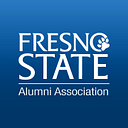Mike Leonardo (1981), Lyles College of Engineering
By ESRA HASHEM
For Mike Leonardo, Fresno State engineering is in his blood.
He recalls being 7 years old when his father attended Fresno State to study civil engineering. When Mike would wake up in the middle of the night, he’d find his father studying. On the weekends and summers, his father would work as a mechanic, while his mother worked as a secretary.
“I always admired my mom and dad,” Mike says as he recalls how hard his parents worked. “I never remember being hungry, but I do remember my folks worrying about where they were going to get their next meal.”
It was early college when Mike realized he too had a penchant for engineering. He earned a B.S. in Civil Engineering from Fresno State in 1981 while launching his career at the City of Fresno. He then worked at California Water Quality Control Board and Caltrans.
Mike has since held critical leadership roles, making a big impact on the Central Valley and beyond.
He was key in identifying solutions to deal with the 2005 funding shortfall of the San Francisco-Oakland Bay Bridge. For six years, he was responsible for utility services for the City of Clovis and improved its street and utility infrastructure. Mike’s leadership skills were also critical to the introduction of the high-speed rail to the United States, helping design and build the first section of the project in the Central Valley.
Currently, he serves as the executive director for the Fresno County Transportation Authority.
“It is important to me to be able to serve this local community,” Mike says. “We’re called civil engineers because we serve society. I’ve really come to appreciate that as I’ve worked through my career.”
For Mike, Fresno State engineering still holds a special place in his heart — in addition to his father, Mike’s children and their spouses are all Fresno State engineering graduates. Mike also volunteers as the chair for the University’s Civil Engineering Advisory Board, where he helps faculty develop curriculum that best prepares students for the professional world.
“Any investment where you can put that little money into something, for a lifetime of earnings that you have if you get a college degree … There’s no better investment,” he says.

